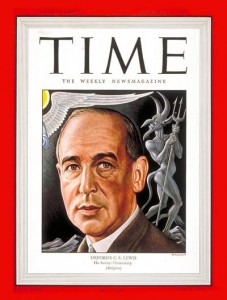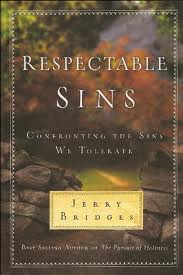By Faith
Last Sunday, we introduced a new song by Keith and Kristen Getty called By Faith. I chose the song because of its strong tie to Hebrews chapter 11, often referred to as the “faith chapter.” The lyric is rich in Biblical history and offers us strong encouragement. The phrase “by faith” occurs eighteen times in chapter 11 alone. As I read through Hebrews 11, I see at least three things that I’d want us to think about as we sing this song.
- Hebrews 11:6 says, “And without faith it is impossible to please him, for whoever would draw near to God must believe that he exists and that he rewards those who seek him.” Try as we may, we cannot please God purely on our own effort. The writer of Hebrews gives us Noah, Abraham, Isaac, Jacob and Joseph among others who pleased God because they trusted Him and looked to the reward. My favorite is Moses who, according to verse 26, “considered the reproach of Christ greater wealth than the treasures of Egypt, for he was looking to the reward.” When every natural instinct was to stay in Egypt and be comfortable, he looked to the reward, which is God Himself, and chose the reproach of Christ.
- The writers of Hebrews and of our song are showing us that every major event in Biblical history that pleased God was done by faith. We are taken on a tour of the Bible as it surveys the patriarchs, the prophets, the Judges and the Kings. I love songs that help us remember Biblical truth.
- The chorus of By Faith encourages us to stand on the shoulders of those who have gone before us. It lets us know that we are part of a much larger story and then gives us an important instruction.
We will stand as children of the promise
We will fix our eyes on Him our soul’s reward
Till the race is finished and the work is done
We walk by faith and not by sight
The instruction for how to live a life by faith is in the second line of the chorus. As we fix our eyes on Jesus, our soul’s reward, He will enable us to walk by faith and not by sight. That’s what all the people mentioned in Hebrews 11 had in common – they were looking, along with Abraham, for a city whose architect and builder is God. That pursuit enabled them to do great things for God. May it be so for us as well.
By faith we see the hand of God
In the light of creation’s grand design
In the lives of those who prove His faithfulness
Who walk by faith and not by sight
By faith our fathers roamed the earth
With the power of His promise in their hearts
Of a holy city built by God’s own hand
A place where peace and justice reign
We will stand as children of the promise
We will fix our eyes on Him our soul’s reward
Till the race is finished and the work is done
We’ll walk by faith and not by sight
By faith the prophets saw a day
When the longed-for Messiah would appear
With the power to break the chains of sin and death
And rise triumphant from the grave
By faith the church was called to go
In the power of the Spirit to the lost
To deliver captives and to preach good news
In every corner of the earth
We will stand…
By faith this mountain shall be moved
And the power of the gospel shall prevail
For we know in Christ all things are possible
For all who call upon His name
We will stand…
Resources for Killing Sin
Though sin no longer separates the believer from God in the ultimate sense, we know both from Scripture and an honest assessment of our daily lives that it is still a force very much active within us. When left unchecked, sin will kill the joy not only in our human relationships, but in our relationship with God. Thus, be killing sin – or sin will be killing you.
If you’d like to further equip the mind in regards to killing sin, I’d recommend the books below – all excellent reads on the subject. You can check at the RBC Bookstore between Sunday services for availability of any of these.
 In The Mortification of Sin, Puritan pastor-theologian John Owen provides vital teaching in a neglected aspect of Christianity – killing sin. In this book, Owen effectively dismisses various excuses for not engaging in self-scrutiny and yet avoids the current trend of self-absorption. In so doing, he provides principles to help believers live lives of holiness before God. You can go for the original unabridged version, but for a quicker read, I’d recommend Richard Rushing’s abridged version.
In The Mortification of Sin, Puritan pastor-theologian John Owen provides vital teaching in a neglected aspect of Christianity – killing sin. In this book, Owen effectively dismisses various excuses for not engaging in self-scrutiny and yet avoids the current trend of self-absorption. In so doing, he provides principles to help believers live lives of holiness before God. You can go for the original unabridged version, but for a quicker read, I’d recommend Richard Rushing’s abridged version.
In The Enemy Within: Straight Talk About the Power and Defeat of Sin, Kris Lundgaard draws on two works by the aforementioned Puritan in writing this modern-English distillation of two of Owen’s most renowned works – Indwelling Sin and The Mortification of Sin. Lundgaard offers insight, encouragement,  and hope for overcoming the enemy within.
and hope for overcoming the enemy within.
Cornelius Plantinga Jr.’s Not the Way It’s Supposed to Be: A Breviary of Sin revives in modern terms the ancient awareness of sin that has slipped in recent decades. Plantinga uses clear language and draws upon myriad books, films and other cultural resources to drive home our need to simultaneously hate sin and love the grace of Christ.
In Respectable Sins: Confronting the Sins We Tolerate, Jerry Bridges asserts that we have become so preoccupied with the “major” sins of our society, Christians have ceased to heed the dangers of more subtle sins in our lives. We the Church must not act as though sin were only something out “in the  world” and so tolerate jealousy, anger, pride and ungodliness within our own hearts. Bridges humbly points his readers again and again to the profound mercy of the grace of Jesus.
world” and so tolerate jealousy, anger, pride and ungodliness within our own hearts. Bridges humbly points his readers again and again to the profound mercy of the grace of Jesus.
You can check out the audio/video of the weekend teaching here. Below are a few Scriptures (ESV) for study & reflection regarding sin, the mind as watchman to the soul, and others referenced during the teaching.
Romans 7:21-23 – So I find it to be a law that when I want to do right, evil lies close at hand. For I delight in the law of God, in my inner being, but I see in my members another law waging war against the law of my mind and making me captive to the law of sin that dwells in my members.
James 4:17 – So whoever knows the right thing to do and fails to do it, for him it is sin.
Psalm 51:5 – Surely I was sinful at birth, sinful from the time my mother conceived me.
Psalm 58:3 – Even from birth the wicked go astray; from the womb they are wayward and speak lies.
Galatians 5:17 – For the desires of the flesh are against the Spirit, and the desires of the Spirit are against the flesh, for these are opposed to each other, to keep you from doing the things you want to do.
Romans 8:12-13 – So then, brothers, we are debtors, not to the flesh, to live according to the flesh. For if you live according to the flesh you will die, but if by the Spirit you put to death the deeds of the body, you will live.
Colossians 3:5-6 – Set your minds on things that are above, not on things that are on earth. For you have died, and your life is hidden with Christ in God. When Christ who is your life appears, then you also will appear with him in glory. Put to death therefore what is earthly in you: sexual immorality, impurity, passion, evil desire, and covetousness, which is idolatry.On account of these the wrath of God is coming.
1 Corinthians 9:26-27 – So I do not run aimlessly; I do not box as one beating the air. But I discipline my body and keep it under control, lest after preaching to others I myself should be disqualified.
Paul Grows in His Knowledge of Sin
1 Corinthians 15:9 (written approximately AD 55) – For I am the least of the apostles, unworthy to be called an apostle, because I persecuted the church of God.
Ephesians 3:8 (written approximately AD 60 ) – To me, though I am the very least of all the saints, this grace was given, to preach to the Gentiles the unsearchable riches of Christ…
1 Timothy 1:15 (written approximately AD 64) – The saying is trustworthy and deserving of full acceptance, that Christ Jesus came into the world to save sinners, of whom I am the foremost.
*Note that if you study the surrounding context of each reference above, you’ll see that as Paul grows in the knowledge of his own sin nature, he likewise expresses growth in his knowledge of grace, redemption, and forgiveness. He grows in his love and appreciation for Christ as he realizes more and more what he has been saved from.
For example:
1 Corinthians 15:10 – But by the grace of God I am what I am, and his grace toward me was not in vain. (In this section, you’ll see Paul mainly reflecting on the work God did in/through him by grace, despite his sin as an individual.)
Ephesians 3:9-10 – ...and to bring to light for everyone what is the plan of the mystery hidden for ages in God who created all things, so that through the church the manifold wisdom of God might now be made known to the rulers and authorities in the heavenly places. (You’ll see Paul expanding upon the mystery of God’s eternal purposes “unsearchable riches of Christ” and the “manifold wisdom of God” being revealed beyond himself to the Gentiles through the church.)
1 Timothy 1: – To the King of the ages, immortal, invisible, the only God, be honor and glory forever and ever. Amen. (Paul reflects on being “the foremost of sinners” in light of also being one who is entrusted with “the gospel of the glory of the blessed God” through the great majesty, mercy, grace, patience and strength of Christ.)
On the Mind
1 Pet. 1:13 – Therefore, preparing your minds for action, and being sober-minded, set your hope fully on the grace that will be brought to you at the revelation of Jesus Christ.
Luke 24:45 – Then [Jesus] opened their minds to understand the Scriptures…
Romans 8:6 – For to set the mind on the flesh is death, but to set the mind on the Spirit is life and peace.
Romans 12:2 – Do not be conformed to this world, but be transformed by the renewal of your mind, that by testing you may discern what is the will of God, what is good and acceptable and perfect.
James 1:8 – …he is a double-minded man, unstable in all his ways.
2 Corinthians 4:4 – In their case the god of this world has blinded the minds of the unbelievers, to keep them from seeing the light of the gospel of the glory of Christ, who is the image of God.
2 Corinthians 11:3 – But I am afraid that as the serpent deceived Eve by his cunning, your thoughts will be led astray from a sincere and pure devotion to Christ.
*Joseph is a great example of the mind being prepared. When he is tempted by Potiphar’s wife in Genesis 39:6-10, he says, “How then can I do this great wickedness and sin against God?” (Genesis 39:9). I believe this indicates he was holding a two-fold truth at the forefront of his thinking – sin is evil and God is holy. Thus, “as she spoke to Joseph day after day, he would not listen to her, to lie beside her or to be with her.”
Others
Hebrews 10:14 – For by a single offering He has perfected for all time those who are being sanctified.
Ephesians 6:17 – … take the helmet of salvation, and the sword of the Spirit, which is the word of God…
Ephesians 2:8-9 – For by grace you have been saved through faith. And this is not your own doing; it is the gift of God, not a result of works, so that no one may boast.
Philippians 1:6 – And I am sure of this, that he who began a good work in you will bring it to completion at the day of Jesus Christ.
Biblical Eldership
As a follow-up to the teaching on May 29 regarding biblical eldership: With the desire to encourage you into a personal study of biblical eldership, please see the link below to a worksheet that contains a list of all the New Testament verses that discuss elders (and also the term “pastor”). You are encouraged to look at each passage and determine what title is used (elder, overseer, etc.), what is implied regarding role or function (although not all passages are explicit on this), and what additional observations you see from the passage.
Also, leave a comment on this post if you have questions about eldership or leadership here at RBC that weren’t covered in the message from May 29.
The Practice and Pursuit of Hospitality
9Love must be sincere. Hate what is evil; cling to what is good. 10Be devoted to one another in brotherly love. Honor one another above yourselves. 11Never be lacking in zeal, but keep your spiritual fervor, serving the Lord. 12Be joyful in hope, patient in affliction, faithful in prayer. 13Share with God’s people who are in need. Practice hospitality.
~ Romans 12:9-13
In Romans 9:13, God instructs us through the words of the apostle Paul to practice hospitality. It is worth noting that Scripture is not tossing out a suggestion here. “Consider practicing hospitality when it is convenient or if you feel you might be particularly gifted in that area.” No. Practice hospitality. Paul’s word choice here is specific. He is not saying “practice” in the sense of “try this out to see if you’re any good at it” but rather “do this over and over and over so often that you get good at it.” Therefore, we are commanded to eagerly pursue, seek, and run after hospitality. Furthermore, Paul indicates from verse nine that the pursuit of hospitality is a fruit of sincere love.
In 1 Peter 4:8-9, Peter, like Paul frames hospitality in the context of a loving command:
8Above all, love each other deeply, because love covers over a multitude of sins. 9Offer hospitality to one another without grumbling.
It would stand to reason that the call to pursue hospitality is not merely a call to practice a certain set of actions (thought it is not less than this), but a call to be a certain type of person. You know this type of person immediately when you encounter them. They love sincerely and deeply; they are hospitable with no strings attached. They are the type of person who is willing to undergo personal sacrifice for the glory of God and for the good of His people. In God’s call to practice and pursue hospitality, this is the type of person He is asking us to be.
Hospitality by its nature is inconvenient, and the practice of hospitality requires some level of personal sacrifice. There have been many times when my family and I have been the recipients of others’ hospitality. I remember a specific time earlier this year when some friends invited us to their house for brunch. It was evident that an amount of foresight and preparation had gone into our being there. Their house was clean, a meal had been prepared, and their demeanor and interactions with us were warm and engaging. They broke from their normal routines, bought extra food and invested extra time and effort to invite us into their home, though we had no inherent right to be there. The command to pursue hospitality is a command to be that type of person, willing to sacrifice, not grumbling at the inconvenience or resentful at whatever personal cost has to be made to pursue someone through hospitality.
It is not difficult to see how hospitality is intrinsic to the gospel of Jesus Christ. A great price has been paid by a gracious Host to invite many in to a place we have no inherent right to be. We are here by loving and gracious invitation. If we understand the gospel, hospitality is simply a natural overflow of Jesus’ grace in our life to others’. Only through Him can we be the type of person God calls to be.
During our relocation process, I have been using and thinking about the phrase “our new church home” to refer to our new facility here in Dulles, VA. “Home” has certain implications for most; for me, home is an intersection of duty and delight. There is duty in that my home requires constant maintenance and upkeep, and there is delight in extending the benefits of my home with others – family, friends or otherwise. Particularly in this age of visual learners, the practice of hospitality is a poignant and tangible reminder of God’s gracious hospitality though Christ. Hospitality should be a hallmark of our homes and our church. God grants us the grace to pursue this virtue through Christ, and to steward this well, we must find that sweet spot where duty and delight intersect – obeying the command to practice hospitality, but delighting in it because it glorifies Him as our greatest treasure.
Pray that God would mature and bless our families and our church as we seek to reflect the glory of the gospel of Christ through the practice and pursuit of hospitality.
– – –
Let me also offer a practical & specific next step for you: consider joining our Host Team here at RBC. The Host Team is comprised of volunteers who serve during weekend services in various capacities. This team is an incredibly important part of church life at RBC and is the first point of contact for many guests and our own congregation. We currently desire to raise up over 100 men and women to serve as ushers and parking lot attendants during our Sunday services. You can find more information here: www.restonbible.org/resources/volunteer
Hostility, Heresy, & C.S. Lewis
 My wife Heidi and I had the pleasure of attending The C. S. Lewis Institute conference a few weeks ago. Lewis’ book Mere Christianity was the topic. It had been a few years since I’d read the book, and it seemed like a good way to get a refresher course on one of the 20th century’s great Christian thinkers.
My wife Heidi and I had the pleasure of attending The C. S. Lewis Institute conference a few weeks ago. Lewis’ book Mere Christianity was the topic. It had been a few years since I’d read the book, and it seemed like a good way to get a refresher course on one of the 20th century’s great Christian thinkers.
Dr. Chris Mitchell, a professor at Wheaton College, led us through five fascinating lectures. I had not realized that Mere Christianity was originally a series of radio addresses that were given over the BBC during World War II. I also hadn’t previously known what it cost Lewis to clearly proclaim his faith to over a million listeners.
We often think that the world’s hostility toward faith in Christ is worse now than in our parents’ day. Not so. In 1947, Lewis’ picture appeared on the front cover of Time magazine. The headline read:
“OXFORD’S C.S. LEWIS, His Heresy: Christianity.”
Lewis was disdained by many at Oxford because he spoke publicly of his faith in Christ. Their attitude seemed to be it’s fine to be a Christian, but not to speak of it in public – and certainly not in academia.
Dr. Mitchell also read a startling quote from authoress Virginia Woolf. After a meeting with T. S. Elliot during which he told her he was now a follower of Christ, she wrote:
“I have had a most shameful and distressing interview with dear Tom Elliot, who may be called dead to us all from this day forward. He has become an Anglo-Catholic believer in God and immortality and goes to church. I was shocked. A corpse would seem to me more credible than he is. I mean, there’s something obscene in a living person sitting by the fire and believing in God.”
That quote is from the year 1928. I was reminded of Jesus words in John 15:18 – 20, “If the world hates you, keep in mind that it hated me first. If you belonged to the world, it would love you as its own. As it is, you do not belong to the world, but I have chosen you out of the world. That is why the world hates you. Remember the words I spoke to you: ‘No servant is greater than his master.’”
People of the Spirit

Is it just me, or is there a certain elusiveness to that third member of the Trinity? You know the one. Father, Son and… who? Ah, yes. Holy Spirit. While I can perceive (faintly, dimly) of the awesomeness of God the Father through the majestic revelation of Jesus the Son, I often feel like I draw a mental blank in relating to the Spirit. My brain knows the theology of this third co-equal, co-eternal Person, but do I really know? You know?
About six years ago, I was handed the keys to our Young Adults ministry here at RBC. As a young, nervous wannabe pastor, I thought an appropriate first teaching series would be a boot-camp style basics of Christianity. The week before Halloween it just so happened that the topic was the Holy Spirit, and I cleverly titled my message “Ghost Story” – which turned out to be a rather embarrassing foreshadowing of my own shallow grasp of the Holy Spirit. About halfway through my message, I noticed that I kept referring to the Holy Spirit as “it” rather than “He.” Convicting? Believe it. After publicly repenting several times in the middle of my sermon, it’s not a mistake I’ve (knowingly) made since – but it did reveal something that has stuck with me: The Holy Spirit makes me nervous. I might go as far to say that I’m a even a little afraid of Him. Continue reading
Why We Use Social Media at Reston Bible Church
As a church whose greatest desire is to know Christ and to make Him known, we are bearers of the greatest message of all time. The constant proclamation of the gospel – both for the edification of believers and the awakening of sinners – is our duty and delight. Though the truths of the Gospel are innately powerful and timeless, the means through which the Gospel is communicated are as varied as history and culture.
Are all means of relaying the gospel good, effective, or equal? Not at all. Nor should all believers necessarily engage in certain means and methods of communicating the gospel. However, this is not to say that those means and methods be automatically dismissed for all merely because of individual conviction or cultural popularity. In an article entitled “Why and How I am Tweeting,” one pastor points out two prevailing responses toward internet-based social media (blogs, Facebook, MySpace, Twitter, etc.):
One says: These media tend to shorten attention spans, weaken discursive reasoning, lure people away from Scripture and prayer, disembody relationships, feed the fires of narcissism, cater to the craving for attention, fill the world with drivel, shrink the soul’s capacity for greatness, and make us second-handers who comment on life when we ought to be living it. So boycott them and write books (not blogs) about the problem.
The other response says: Yes, there is truth in all of that, but instead of boycotting, try to fill these media with as much provocative, reasonable, Bible-saturated, prayerful, relational, Christ-exalting, truth-driven, serious, creative pointers to true greatness as you can.
The Creative Arts team of RBC resonates with that second type of response. We would put the use of social media in the category of “missional contextualization.” That is to say, these are culturally relevant tools used to reach and teach in ways people around us are familiar with. Just as a missionary would study and use the language and culture of a people group in order to reach them as effectively as possible, so we desire to use social media and other communication technology as a way of effectively reaching, teaching and preaching to those around us.
The New Testament in particular clearly shows us the importance of missionally contextualizing Gospel truth. Scripture emphasizes communicating its timeless truth in ways that people of specific times and cultures can understand and relate to. As a brief example, Jesus often teaches in simple parables about coins, sheep, seeds and bread (Luke 15:1-10, Matt. 13, John 6) – these are visual themes his audience can relate to and connect with in order to grasp biblical truths. Paul likewise reasons with Jews from their own Scriptures, quotes pop-culture literature to philosophers and references familiar pagan gods in order to contextualize the Gospel and teach about Jesus (Acts 17). And undoubtedly, the greatest example of missional contextualization is God the Father, who entered into humanity and engaged in human culture as Jesus the Son in order to visibly explain Himself to us in a way that we could relate to, connect with and understand (John 1:14, Gal 4:4-5, 1 Tim. 3:16).
Again, as Christians, we are vessels of the greatest message ever – the gospel. Both believers and non-believers alike are in continual need of the gospel and its application to our lives. Social websites, graphic design, videography, etc., are timely methods to speak into the culture of Northern Virginia (and beyond) with the purpose of proclaiming and reinforcing the worth, relevance, and glory of the gospel of Jesus. Though vastly inferior to the gospel itself, we consider these methods as vessels useful in proclaiming Christ’s great worth. To Him be the glory as we seek to know Him and make Him known through social media.





